August 03, 2023
Each year, students from Mizzou and other colleges and universities spend the summer working on undergraduate research at Mizzou Engineering. Exploring research questions ranging from materials science to neuroscience, they examine how the world functions and how engineers can make it better.
This summer, engineering faculty sponsored four Research Experiences for Undergraduates (REUs), competitive programs for students from across the country to come to Mizzou to gain research experience and get a glimpse of graduate school. In addition to the REUs, some engineers presented research they conducted after receiving Mizzou Engineering Undergraduate Research Fellowships.
Scroll to see a few of the students presenting and to learn about their projects.
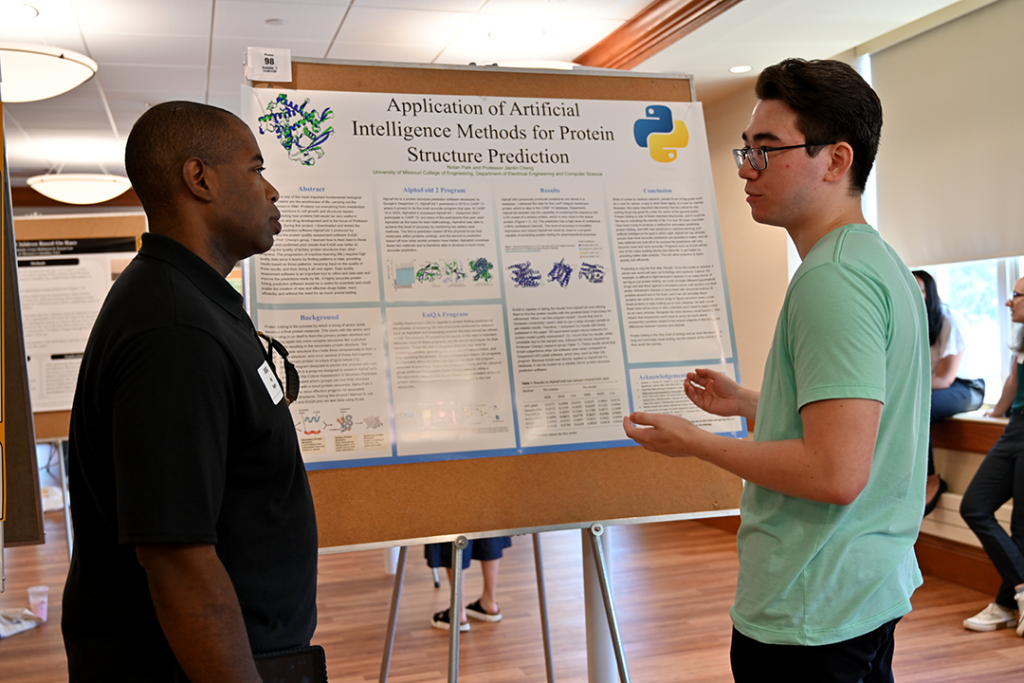
Nolan Park is a freshman at Mizzou Engineering studying computer science and statistics. He investigated the application of artificial intelligence and machine learning in predicting how proteins fold for his project, “Application of Artificial Intelligence Methods for Protein Structure Prediction.” In the future, work such as this could have applications in pharmacutical development.
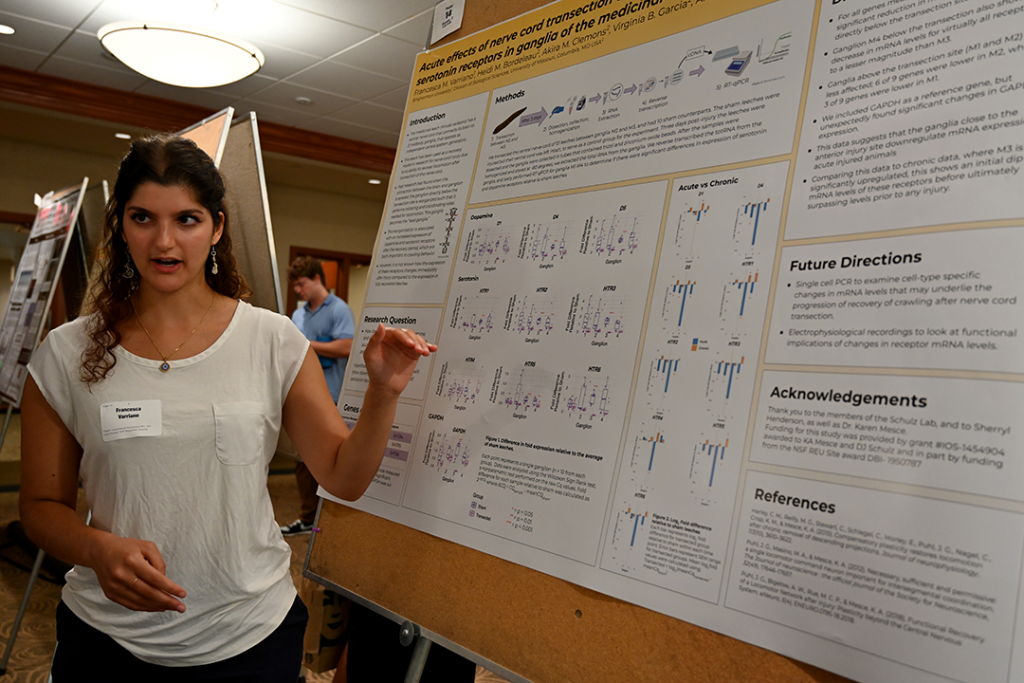
Francesca Varriano, an integrative neuroscience major at Binghamton University, researched, “Acute Effects of Nerve Cord Transection on Amine Receptor Expression in Ganglia of Medicinal Leech,” while participating in the Computational Neuroscience REU. She explored how serotonin and dopamine can play a role in locomotion in leeches after an injury, with hope that in the future the knowledge can be applied to human spinal cord injury research.
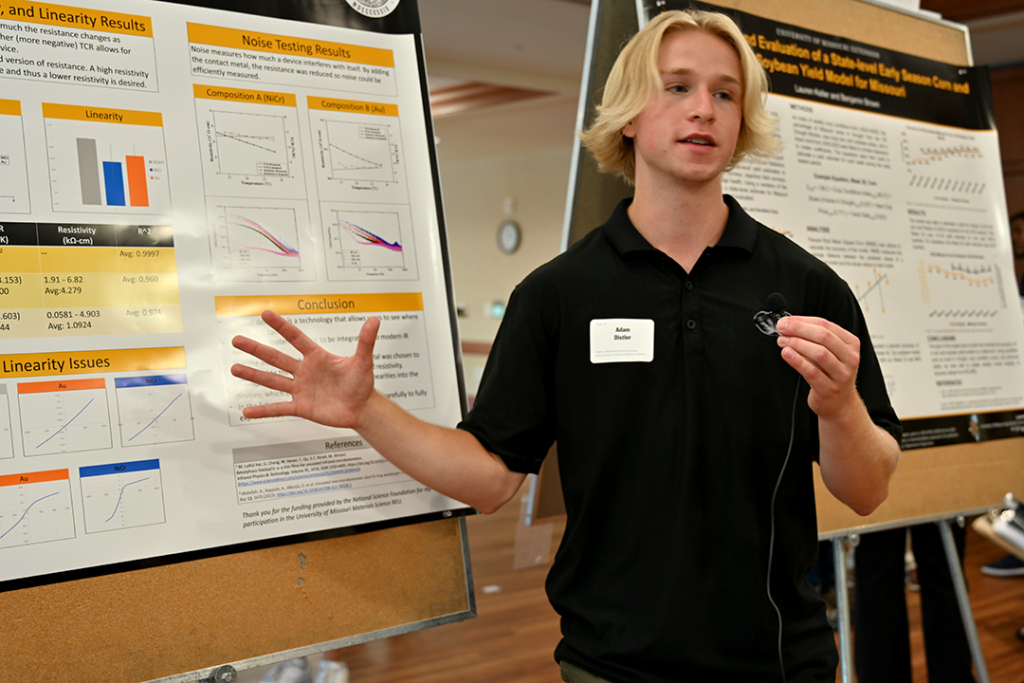
Adam Distler is a math and astrophysics major from the University of Wisconsin-Madison. He presented, “Optimizing Performance of Silicon-Germanium-Oxide Thin Films for Use in Infrared Detectors,” as part of his participation in the Materials Science REU. His research explored using contact metals to optimize the performance of infrared detectors, but found that the contact metal tested was detrimental to the performance of infrared detectors that used Silicon-Germanium-Oxide thin films.
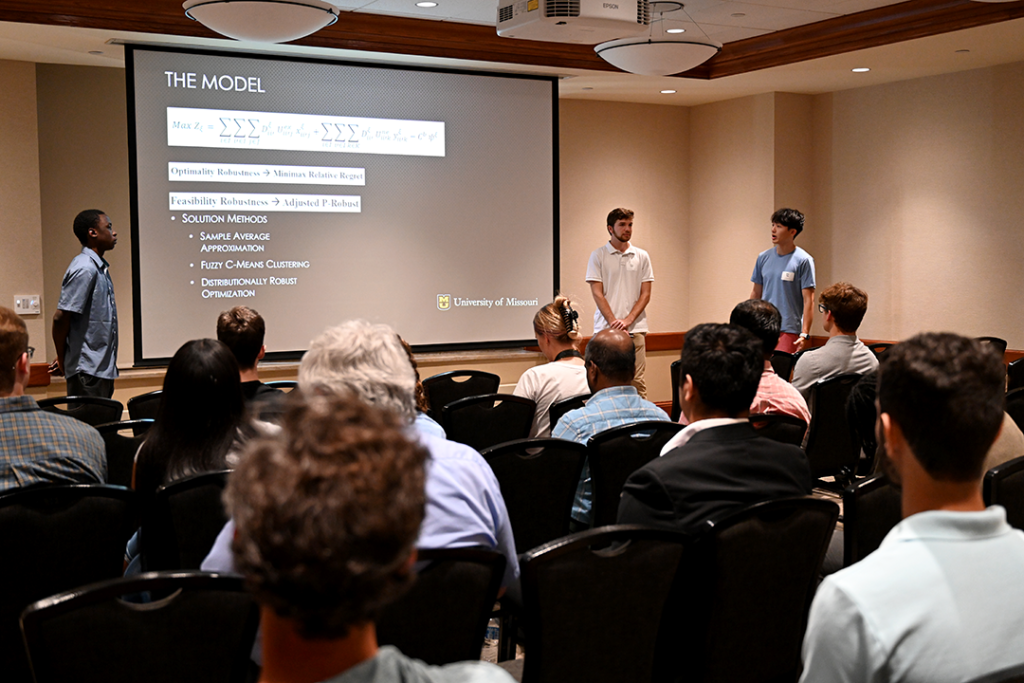
Three students from the AI-Enabled Operations REU presented, “Hybrid Minimax Relative Regret Adjusted P-Robust Model for Electric Vehicle Charging Station Location Selection.” Abdullahi Ayantayo, Carson Swain and Brian Yang prepared an oral presentation for the Research Forum, during which they shared their research into how to sufficiently cover the most area with the fewest charging stations, without leaving any electric vehicle charging deserts.
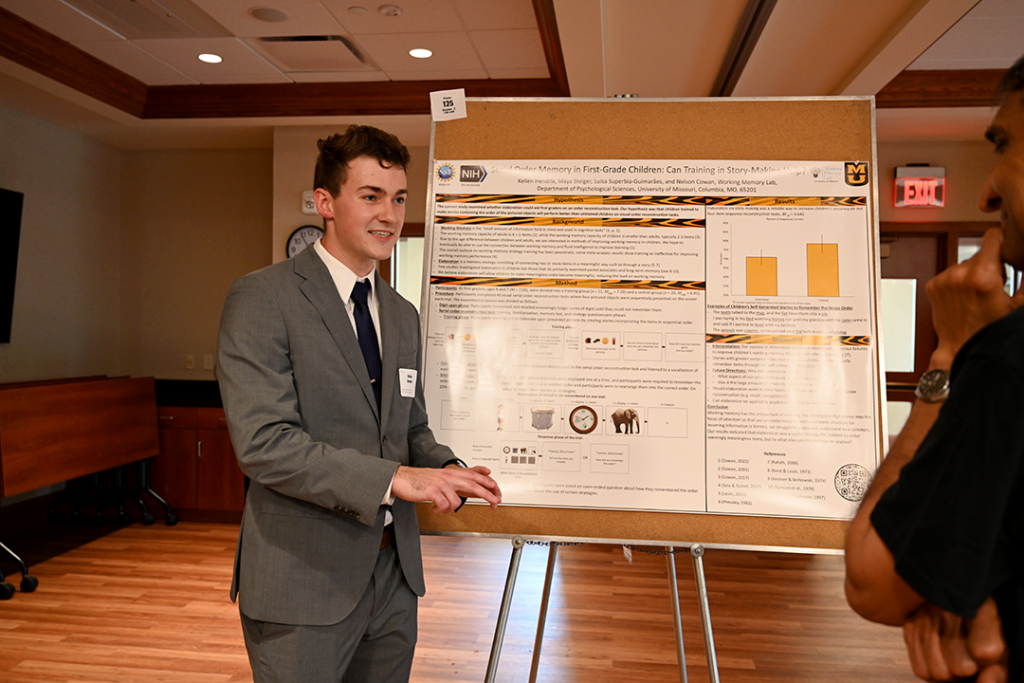
Kellen Hendrix is a psychology and statistics student from Southwest Baptist University who participated in the Computational Neuroscience REU. His research, “Serial Order Memory in First-Grade Children: Can Training in Story-Making Help?” discovered it is possible to increase working memory in children by training them to create stories to remember the order of items on a screen.
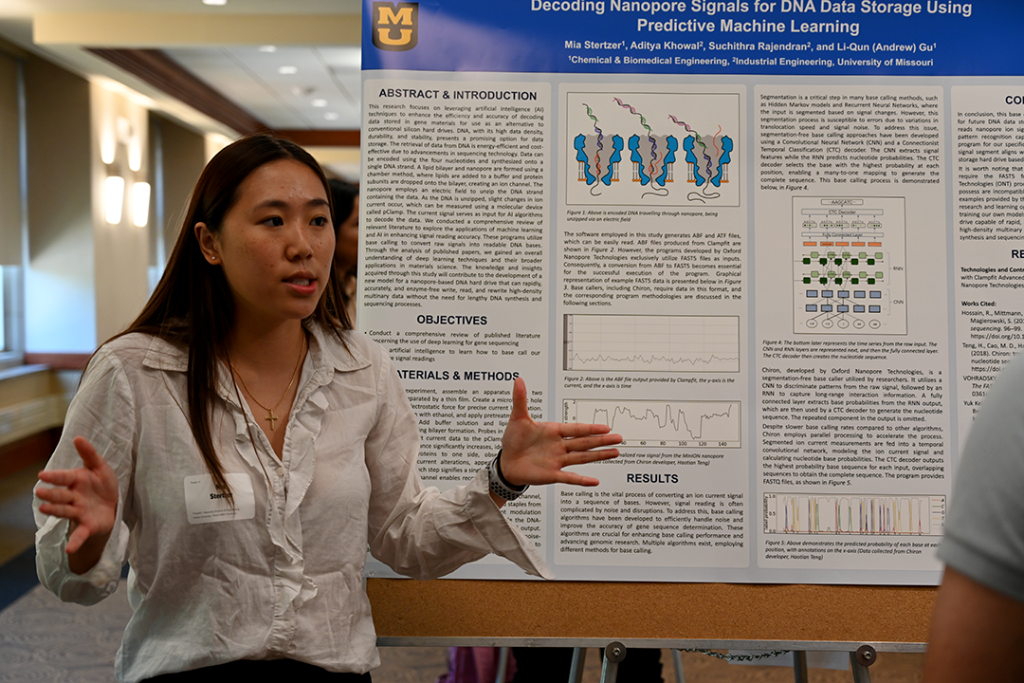
Mia Stertzer is a materials science and engineering student from Texas A&M University. During the Materials Science REU, her research, “Decoding Nanopore Signals for DNA Data Storage Using Predictive Machine Learning,” looked into using DNA to store large amounts of data in a smaller amount of space, with applications in developing a new type of computer hard drive. She used artificial intelligence to decode information used on a single strand of DNA.
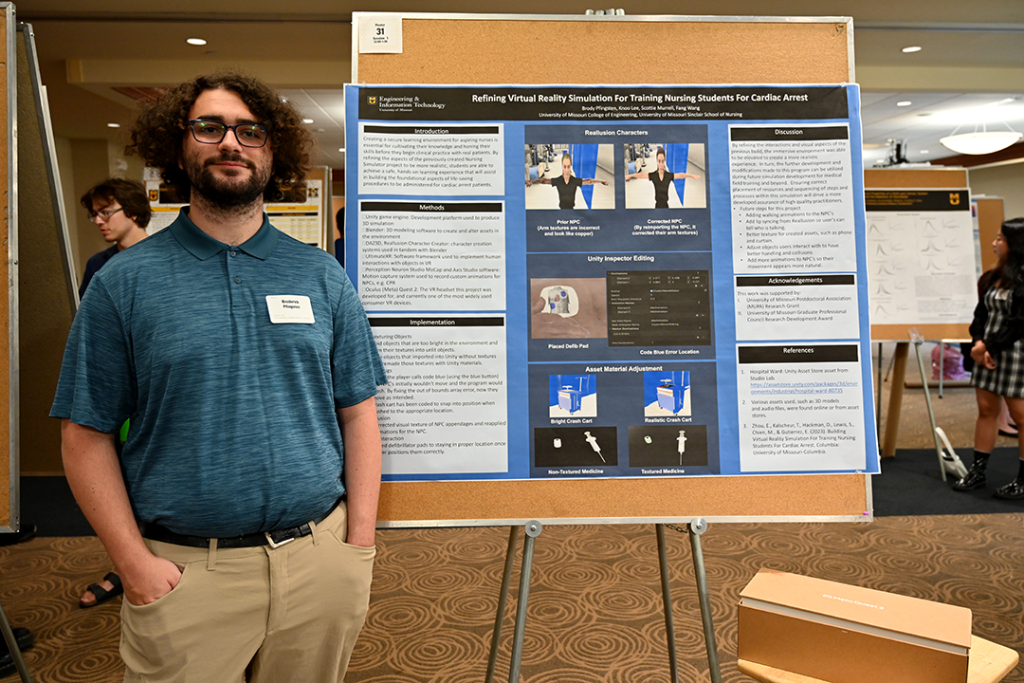
Broderick Pfingsten, a computer science student at Mizzou, worked on the project, “Refining Virtual Reality Simulation for Training Nursing Students for Cardiac Arrest.” Over the summer, he made sure the product was able to begin the testing phase this fall. This included minimizing bugs for users and making the models and textures look more accurate.
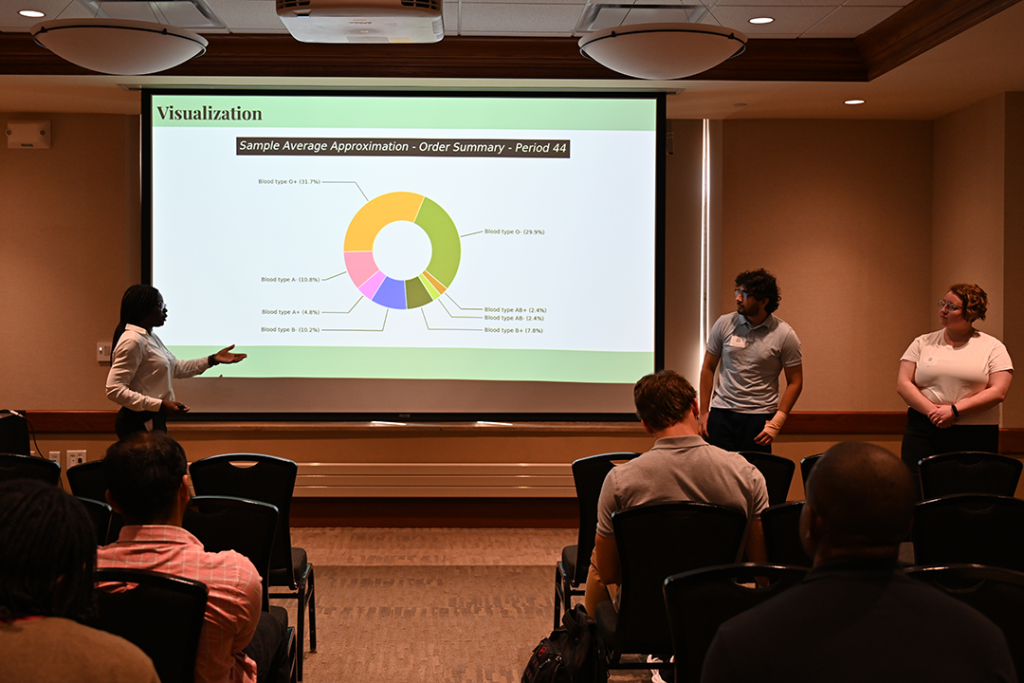
Brianna Abam, Aditya Khowal and Emma Lewis presented, “Perspective Analytics for AI Enabled Operations Engineering in Medical Facilities and Blood Ordering Policies,” as part of their participation in the AI Enabled REU. The project examined how to keep hospitals supplied with the greatest amount of blood possible with the least amount of waste using AI generated data.
Conduct engineering research as an undergraduate student. Choose Mizzou Engineering today!